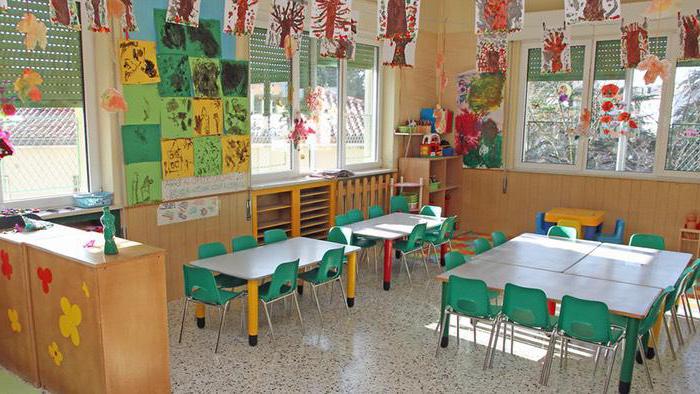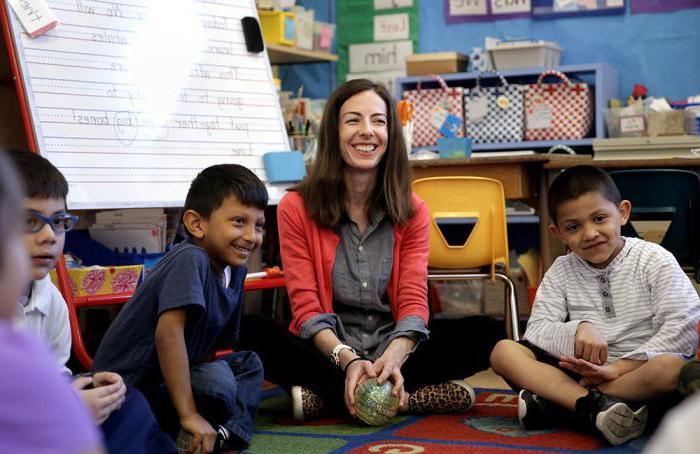Most young families with small children simply cannot afford to raise a child at home and live on money earned by only one parent. That is why almost all babies begin their social life going to kindergarten from one and a half to two years to give both parents the opportunity to work. Unfortunately, in recent years, many preschool institutions have faced the problem of a lack of places for everyone, so some children remain at home education. In order to somehow help such families, there is legal compensation for not providing a kindergarten. Before you get it, you need to familiarize yourself with many nuances.
Applicants for a place in the garden
It is interesting that in connection with the current legislation, it is possible to send a baby to kindergarten from the age of two months, but in reality it is almost impossible to meet such preschool institutions. The fact is that the same law explains: this age extension is valid only if there are similar rules in the internal charter of the kindergarten, and many institutions simply do not want to take such responsibility and take children only from the age of two.

The main applicants for a place in kindergarten are the children who were registered at the place of residence for further enrollment in a preschool institution. This should be done almost from the moment of birth, and after the child reaches the right age, write a statement directly on the provision of a place and enrollment in kindergarten. According to the law, DOEs are obliged to provide places for all children, but in a preferential order.
Preferential categories
First of all, children must be enrolled in children's institutions:
- from large families;
- Orphans
- disabled people;
- under guardianship;
- prosecutors, police, judges;
- single mothers;
- dead workers of the Ministry of Emergencies, fire service, military;
- younger brothers and sisters of those children who are already enrolled and attend preschool.
If the child does not belong to any of these categories, the chances of providing a place in the institution fall sharply. Such babies are obliged to provide a place only within a year from the moment of application submission and only from two years of age. And since the state has ceased to pay benefits already one and a half years, the payment of preschool education can significantly affect the budget of the family, which has not yet been able to get on its feet. It is precisely for such cases that a law is envisaged according to which compensation for a kindergarten is provided by the state to all addressed families.
Rules for DOW owners
Compensation for kindergarten is provided for attending any preschool educational organization. This is important to know, because in connection with the increase in the number of children, more and more citizens are organizing their own private gardens.
The same law also spells out strict rules for owners of such institutions, setting the framework for maximum payments. So, a complete change of kindergarten cannot cost parents more than a hundred rubles in one day, even in a private institution. As for short shifts, the maximum payment limit reaches 80 rubles. All this belongs to the category of children from two months to seven years.
Interestingly, depending on the region, the limit on the maximum cost of kindergarten services may vary, but should never exceed the established maximum level by the main federal law.It should be noted that local governments can only lower the upper price threshold.
Compensation Rules
Regardless of the cost of preschool services, compensation for kindergarten is provided in percentage terms, so the amounts vary for different categories of citizens. So, families with one child are entitled to compensation in the amount of 1/5 of the main amount paid. For parents of two children, this amount is already half the payment, and for families with three or more children, compensation is 70%.
Local authorities do not have the right to reduce these indicators, and depending on the budget, they can increase the size of payments. For example, compensation for a kindergarten in certain regions may be half of the amount for all categories.
Also separately considered are the preferential categories of citizens to which children include:
- military personnel;
- kindergarten workers;
- disabled parents;
- liquidators of the Chernobyl accident.
Required documents
All papers must be collected and submitted to the preschool institution only by one parent, on whose name compensation will be transferred. Therefore, for families with one of the parents belonging to the preferential category, this procedure should be entrusted to him.

Present required:
- documents certifying the right to benefits;
- copy of the passport of dad, mom or guardian;
- copies of certificates of all minor children;
- certificate of family composition;
- bank account details for transferring compensation;
- written statement.
For the latter, there is no strict regulation at the state level, so each institution has the right to demand its own nuances of paperwork.
Procedure
Compensation for the kindergarten is provided to the parent only if the authenticity of all submitted documents is confirmed, therefore, not only copies should be brought, but also all originals. After that, the submitted copies will be certified by the official representatives with the seal of the DOE and transferred to the Department of Education. Typically, documents are transmitted immediately from several parents, sealed with a cover letter to everyone, so the institution may not immediately respond to the application by the start of payments. Mandatory data transfer between the preschool institution and the governing organizations is carried out every quarter to adjust the lists of beneficiaries, to report on payments made, and so on.
Wider problem
More often than not, applicants are generally denied the provision of a place for a child, explaining that he was absent. What is the compensation? It is very difficult to get a place in a kindergarten, so the amount of compensation is regulated by local authorities and is set separately in each region. On average in the country, the minimum payout of one thousand rubles is paid in the Samara region. The maximum limit of compensation reaches five thousand or more. Only mothers whose children are older than one and a half years and have not reached the age of seven are entitled to receive this amount of money.

By the way, if the baby was not registered in a preschool institution in a timely manner, compensation for the kindergarten is not provided at all.
Regional regulations
Compensation for failure to provide kindergarten varies depending on the economic situation of the regions. After several years of such payments, some constituent entities of the Russian Federation decided to cancel the compensation, citing the raising of the age criterion for kindergartens. In order to find out exactly what compensation for the kindergarten in 2017 with the changes laid down in a particular region, it is best to apply with an official letter to the Department of Education, since this form of communication cannot be left unanswered by law. According to previously provided data, the amounts vary from 1 to 5 thousand. The maximum cash payments to parents of children not attending kindergartens are approved in the Perm Territory and the Lipetsk Region.
Who is compensated?
As mentioned above, relying on the provision of a sum of money from the state is only for those parents whose children were timely registered for admission to the preschool institution and did not get a place due to its absence. Interestingly, denial of access to the garden can also be granted to owners of privileges in the queue. This is due to the fact that among all beneficiaries there are also certain privileges.
The first to get their places are children:
- Orphans
- disabled people;
- under guardianship.

Only after them are the wishes of low-income families, single mothers, unemployed student mothers and kindergarten workers taken into account. Least of all chances to get your place in a preschool institution on time for the preferential category of children whose older brothers or sisters are already attending preschool. Parents of the first child without a definition in the preferential category will be the most difficult to get a place in the kindergarten. What kind of compensation for the kindergarten is supposed in this case depends on the region of residence.
Required documents
If you did not give a kindergarten, compensation is provided only after documentary confirmation of the rights to this amount of money.
To do this, submit to the Department of Education:
- baby's birth certificate;
- copy of identity document of the parent;
- application for payment;
- official family composition information;
- official denial of admission to kindergarten;
- bank account details;
- confirmation of maternity leave.
In addition to this list, documents on disability, low income and other papers relating to the family in the preferential category are attached.
Clearance process
If they do not give a kindergarten, compensation is provided only after passing through all the stages of its proper execution. Initially, you should find out in the department whether this preferential program is distributed in the region of residence by sending an official letter there. After receiving written confirmation, you can already contact the education department with the prepared documents.
Another option
Even with the collection of all necessary documents and the availability of conditions for benefits, their receipt may be refused. The reasons for this are often the ability of parents to arrange their baby in another preschool, the main thing is that it be located within the same locality as the first kindergarten. Thus, parents need to choose a different kindergarten for their child by applying for a temporary arrangement of their offspring until a place is available for them in the pre-school institution in the community. Such a process is permitted by law, which provides for the freedom of choice by the parents of the kindergarten for the child.

If the parents deny the refusal to pay funds or provide a place in a preschool institution, then they have every right to apply to the prosecutor with a corresponding application.
Payout Summary
At the moment, there are only two ways to cover expenses for parents of preschool children:
- payment of part of the amount to kindergarten;
- receiving compensation in the absence of space for the child.
As for the amount of the refund of part of the money for paying for kindergarten, absolutely everyone can receive it, and regardless of the form of ownership of the preschool institution. By law, even private kindergartens are required to pay part of the money to parents who apply.
The question of what compensation is due if we don’t go to kindergarten has a wider scope. Firstly, the amount depends on the region of the country, and secondly, it is generally provided only to those parents who initially applied for a place in a preschool institution and were registered.
Future forecasts
Despite the continuous improvement of legislation, citizens still have many questions and unresolved deadlocks.In order to regulate the system of payments, provision of places in preschool institutions and other issues related to the Department of Education, the government is constantly considering new amendments to existing regulations.
Thus, the amount of compensation paid was initially taxed with income tax, which, although insignificant, still affects the family budget. Now, the amounts paid go to the parents in full.

Also, significant unloading of preschool education can be done by the organization of small educational groups for toddlers at schools or by deregistration of a child who, in fact, is not at the place of residence.
In most cases, the order of payments and their amount depends on the local authorities, as they are authorized to resolve this issue 100%. But be that as it may, if your baby did not get a place in the kindergarten, and you think that you have compensation, then be sure to contact the appropriate organization.